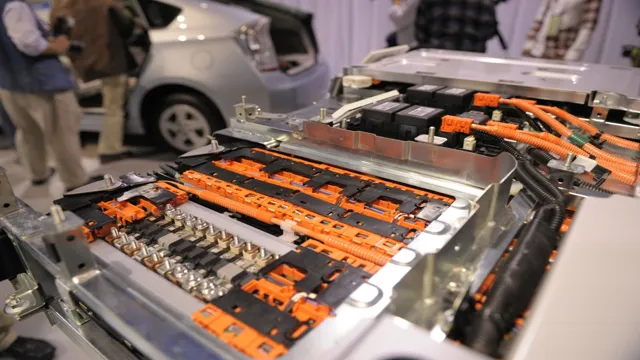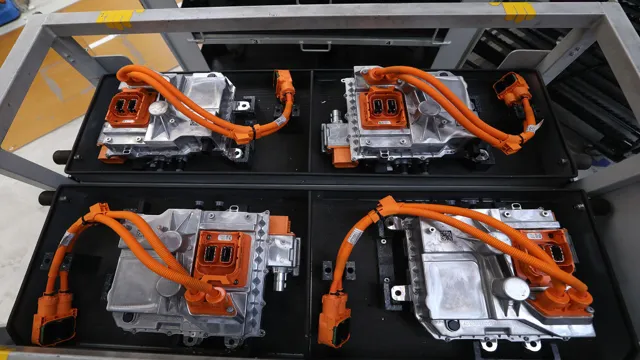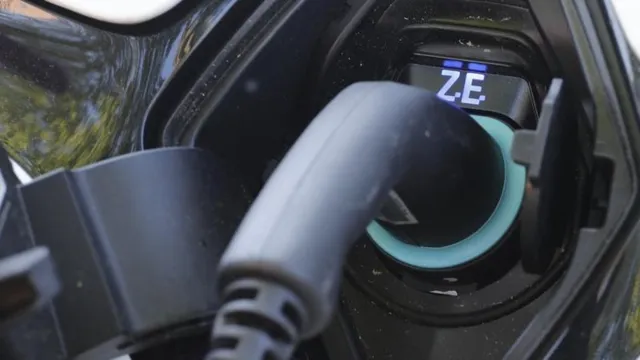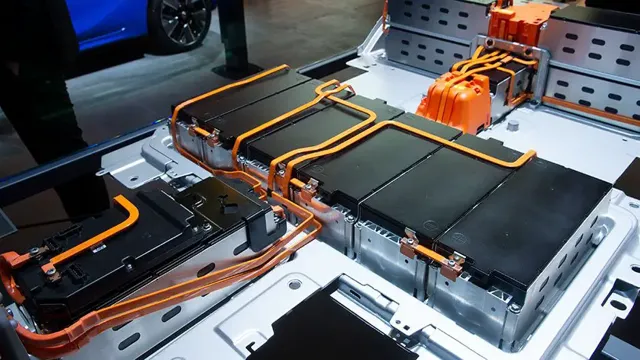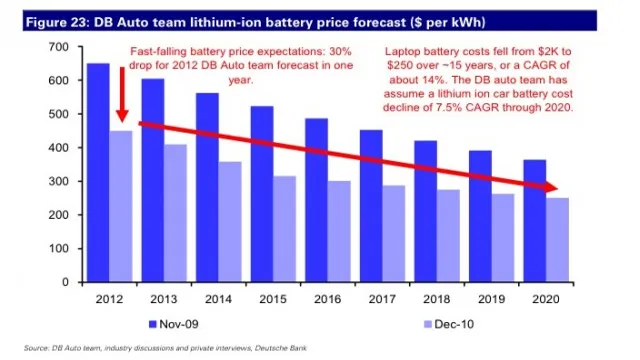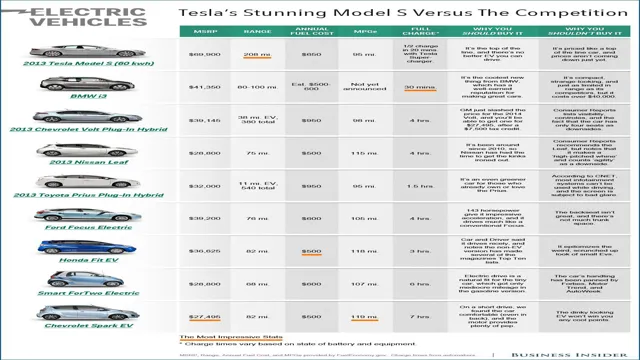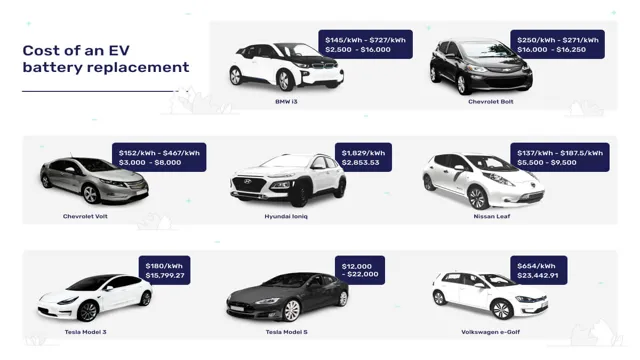Revolutionizing the Automotive World: How Lithium Batteries Are Powering the Electric Car Company of Tomorrow
Electric cars have been growing in popularity thanks to their environmental friendliness and energy efficiency. However, the technology powering these vehicles has evolved over the years, and one type of battery appears to be leading the way: lithium. Lithium batteries offer higher energy density, longer lifespan, and lower weight compared to their counterparts, making them a preferred choice for electric vehicles.
In this blog, we’ll explore the rise of lithium batteries and how they’re changing the future of electric cars. So, fasten your seatbelts, and join us for a ride into the world of electric vehicle batteries!
What Are Lithium Batteries?
When it comes to electric cars, the lithium battery is the backbone of the vehicle’s power system. But what exactly is a lithium battery? In simple terms, it’s a type of rechargeable battery that uses lithium ions to store energy. These batteries are incredibly popular for a few reasons: they’re lightweight, have a high energy density, and have a long lifespan.
Electric car companies use lithium batteries in their vehicles because they’re efficient, reliable, and can be recharged quickly. But not all lithium batteries are created equal. Some brands and models are more efficient than others, so it’s important to do your research before purchasing an electric vehicle.
Overall, the lithium battery is a crucial component of any electric car, and it’s worth learning more about if you’re interested in the future of transportation.
The Chemistry Behind Them
Lithium batteries are a type of rechargeable battery that use lithium ions to transfer energy from the anode to the cathode. When the battery is charged, lithium ions move from the cathode to the anode, creating a flow of electrons which produce electrical energy. Conversely, when the battery is discharged, the ions move from the anode to the cathode, producing current flow that the device can use.
Lithium batteries are popular for their high energy density, meaning they can store more energy per unit of weight or volume than other battery types. This makes them very efficient and long-lasting compared to alternative battery technologies. These batteries are commonly used in portable electronics, such as smartphones, laptops, and digital cameras, as well as in electric vehicles and power tools.
The chemistry behind lithium batteries allows for their unique properties and wide range of applications.
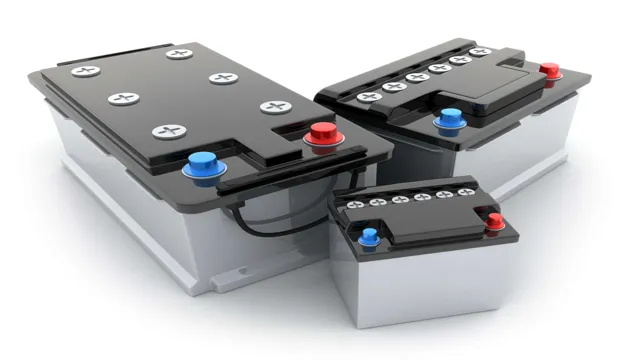
Advantages Over Other Battery Types
Lithium batteries are a type of rechargeable battery that utilizes lithium ions to store and provide electrical energy. These batteries have several distinct advantages over other types of batteries, making them the popular choice for powering a wide variety of devices, from smartphones to electric cars. One of the primary benefits of lithium batteries is their high energy density, which allows them to store more energy in a smaller and lighter package than other battery types.
Additionally, lithium batteries have a long lifespan, low self-discharge rates, and are generally more environmentally friendly than their counterparts. These features make lithium batteries an ideal choice for anyone looking for a reliable and efficient power source. So whether you’re looking to replace the battery in your phone or powering an electric vehicle, lithium batteries are a great option to consider.
Why Electric Car Companies Choose Lithium Batteries?
Electric car companies choose lithium batteries because they offer a range of benefits that traditional lead-acid batteries can’t match. For starters, lithium batteries are much lighter than lead-acid batteries, making them a perfect choice for vehicles that need to be agile and efficient. Additionally, lithium batteries have a much higher energy density, which means they can store more energy in the same amount of space.
This translates to longer driving ranges and faster charging times. Lithium batteries are also much more durable than lead-acid batteries, which means they last longer and require less maintenance. Finally, lithium batteries are environmentally friendly, as they don’t contain toxic materials and can be easily recycled.
All of these factors make lithium batteries the clear choice for electric car companies looking to build high-performance, reliable, and sustainable vehicles.
Increased Range and Battery Life
Electric car companies choose lithium batteries for their vehicles because of the many advantages that they offer, including increased range and battery life. Lithium batteries are known for being lightweight and capable of holding a charge for longer periods of time, which makes them ideal for electric vehicles. Lithium-ion batteries are also known for their energy efficiency, meaning that they can store more energy and use that energy more efficiently than other battery types.
Another major advantage of lithium batteries is that they do not require as much maintenance as other batteries, which can save electric car owners money in the long run. With these benefits, it’s no surprise that electric car companies are choosing to use lithium batteries to power their vehicles.
Efficient Power Conversion
Efficient Power Conversion One of the reasons why electric car companies choose lithium batteries is their high energy density. Lithium batteries can store more energy in a smaller and lighter package than other types of rechargeable batteries, making them an ideal choice for electric cars. They are also more dependable, with longer shelf lives and a low self-discharge rate that ensures the battery stays charged even when the car is parked for an extended period.
Additionally, lithium batteries have a high cycle life, meaning they can endure numerous charges and discharges without significant capacity loss. This cost-effective benefit has made them a popular choice in the electric vehicle market, especially for companies that prioritize range and power. Therefore, higher energy density, dependability, and long life cycle make lithium batteries the ultimate choice for electric car manufacturers looking to provide the best consumer experience.
Cost-Effective and Environmentally-Friendly
One of the main reasons why electric car companies choose lithium batteries is because they are cost-effective and environmentally-friendly. Lithium batteries are known to have a longer lifespan compared to traditional lead-acid batteries, which makes them more cost-effective in the long run. These batteries are also lighter and more compact, which allows for more space in electric cars to add more features.
Moreover, lithium batteries are also better for the environment because they do not contain harmful chemicals like lead or sulfuric acid. This means that when they are disposed of, they do not pose a threat to the environment. Furthermore, the manufacturing process of lithium batteries generates less waste and emissions than traditional batteries.
In conclusion, the use of lithium batteries in electric cars is a win-win situation for both the car manufacturers and the environment. It not only reduces the cost of production but also minimizes the negative impact on the environment, making it a sustainable solution for the future. So, it’s no surprise that electric car companies are increasingly opting for lithium batteries as their preferred choice.
Top Lithium Battery Innovations in Electric Cars
One of the key factors determining the success of an electric car company is their use of lithium battery technology. Lithium batteries have revolutionized the industry, providing longer ranges and faster charging times than their predecessors. One top innovation in this field is the use of solid-state batteries, which offer even higher energy densities and lower risks of overheating or combustion.
Companies like Toyota and BMW are leading the charge in developing solid-state batteries for their electric vehicles. Another exciting development is the use of recycled batteries, which not only reduces waste and environmental impact but also lowers the cost of production. Tesla has been at the forefront of this movement, using recycled batteries in their Supercharger stations and exploring ways to recycle used batteries from their vehicles.
With these and other innovations, electric car companies are paving the way for a cleaner, more sustainable future powered by lithium battery technology.
Tesla’s Lithium-Ion Battery Technology
When it comes to electric cars, the lithium-ion battery is the backbone of the vehicle. This technology has been primarily developed by Tesla, who are known for their industry-leading battery innovations. The 2170 battery cell, which is Tesla’s fifth-generation lithium-ion battery, has been a game-changer in the electric car industry.
It boasts high energy density and improved cooling, increasing the car’s range and charging speed. Tesla’s battery technology is not just limited to electric vehicles. They have also developed large-scale batteries for homes and businesses, making renewable energy storage more accessible.
Overall, Tesla’s lithium-ion battery innovations have helped pave the way for a sustainable future, moving the world away from fossil fuels and towards renewable energy sources.
Chevrolet’s Bolt EV Battery Pack
Chevrolet’s Bolt EV battery pack is one of the top lithium battery innovations in electric cars. This innovative battery pack features a range of up to 238 miles without the need for a recharge, making it a game-changing feature for electric vehicles. With this battery pack, the Chevy Bolt EV can travel farther than many of its competitors, making it a popular choice among electric car enthusiasts.
The Bolt EV battery pack is made up of a complex array of lithium-ion batteries that are strategically placed to provide optimal performance. This battery pack is designed to maintain its charge over the long term, ensuring that the Bolt EV remains a reliable and functional car. Additionally, Chevy has implemented several advancements in battery technology that reduce the cost and weight of the battery pack, adding to the overall value of the car.
In conclusion, Chevy’s Bolt EV battery pack is a significant innovation in the electric car industry, providing drivers with an impressive range, reliability, and cost-effectiveness.
The Future of Lithium Batteries for Electric Cars
Electric car companies have been working on improving lithium batteries for their vehicles. Lithium batteries are currently the most common type of battery used in electric vehicles due to their high energy density and fast charging capabilities. However, manufacturers are still working to improve the lifespan and safety of these batteries, as well as reducing their cost.
The future looks bright for lithium batteries as new technologies are being developed, such as solid-state batteries which use a solid electrolyte, rather than a liquid one, potentially increasing the lifespan of the battery. With the rise in demand for electric vehicles, the electric car company lithium battery market is expected to see a significant increase in the coming years. Companies that can create cost-effective, reliable, and efficient lithium batteries will have a significant advantage in this growing market.
Advancements in Battery Technology
Lithium batteries have been the primary choice for electric car manufacturers due to their high energy density and long lifespan. But there are significant issues that need to be addressed. Lithium-ion batteries are prone to overheating, which can lead to explosions, and they degrade over time, reducing their efficiency.
Nevertheless, researchers are working on next-generation lithium batteries that can overcome these problems. New chemistries and materials are being explored to increase the energy density, stability, and safety of these batteries. Some of these improvements include solid-state electrolytes that eliminate the need for liquid electrolytes – making them less likely to catch fire.
Silicon-based anodes that can store more lithium ions and reduce the risk of structural damage during charging and discharging. Advanced battery management systems that use artificial intelligence to optimize the charging and discharging process and improve the battery lifespan. These advancements could soon make lithium batteries even more efficient, safer, and affordable, revolutionizing the electric car industry and helping us move towards a greener future.
Emerging Lithium Battery Market Trends
Lithium batteries have come a long way since their initial development. They have become a crucial component for electric vehicles, and the future of the lithium battery industry looks promising. One emerging trend in the industry is the development of solid-state lithium batteries.
These batteries offer higher energy density and increased safety compared to traditional lithium-ion batteries. Another trend is the use of recycled materials in battery production, which reduces waste and makes the process more sustainable. As electric vehicle adoption continues to grow worldwide, experts predict a surge in demand for lithium batteries.
This will lead to more innovation and advancements in the industry, resulting in increased efficiency, longer-range batteries, and further cost reductions. The future of the lithium battery market is exciting, and the potential for electric vehicles to become the norm is becoming increasingly likely.
Impact on the Automotive Industry
The automotive industry is actively transitioning towards electric cars, and this shift is heavily reliant on the success of lithium batteries. Lithium batteries are the backbone of electric cars, but what does the future hold for them? Companies are investing heavily in research and development to improve lithium battery technology, increasing their energy density and reducing cost. This will lead to the creation of more affordable electric cars with better range.
Moreover, lithium batteries are proving to be useful beyond powering electric cars. These batteries can store renewable energy from solar panels or wind turbines, increasing our ability to rely on clean energy sources. Investing in lithium batteries could lead to a more sustainable future by reducing our reliance on fossil fuels.
However, there are still challenges that need to be addressed, such as the environmental impact of mining lithium and the difficulty in recycling the batteries at the end of their lifespan. Overall, the future of lithium batteries looks promising, and their success will have a significant impact on the automotive industry and the environment as a whole.
Conclusion
In conclusion, the electric car industry has made great strides towards sustainability with the use of lithium batteries. These batteries, while small in size, have proved themselves to be mighty and efficient, powering cars that are eco-friendly and cost-effective. It only makes sense that the companies leading the charge in electric cars are also the ones investing in the development and production of lithium batteries.
So let’s give credit where credit is due – without the power of lithium, we wouldn’t be able to witness the thrilling transformation of the automotive industry into one that is both green and stylish. Let’s keep the battery charged and take electric vehicles to new heights!”
FAQs
What is an electric car company?
An electric car company is a business that specializes in developing and producing electric vehicles.
What is a lithium battery?
A lithium battery is a rechargeable battery that uses lithium-ion technology to store energy.
What are the benefits of using a lithium battery in an electric car?
Lithium batteries are lightweight, have a high energy density, and are more efficient than traditional lead-acid batteries. This makes them ideal for use in electric vehicles.
What are some examples of electric car companies that use lithium batteries?
Some examples of electric car companies that use lithium batteries include Tesla, Nissan, Chevrolet, and BMW.
How long do lithium batteries last in an electric car?
The lifespan of a lithium battery in an electric car can vary depending on a number of factors, such as the quality of the battery and how it is used. Generally, a well-maintained lithium battery can last anywhere from 5 to 15 years.
